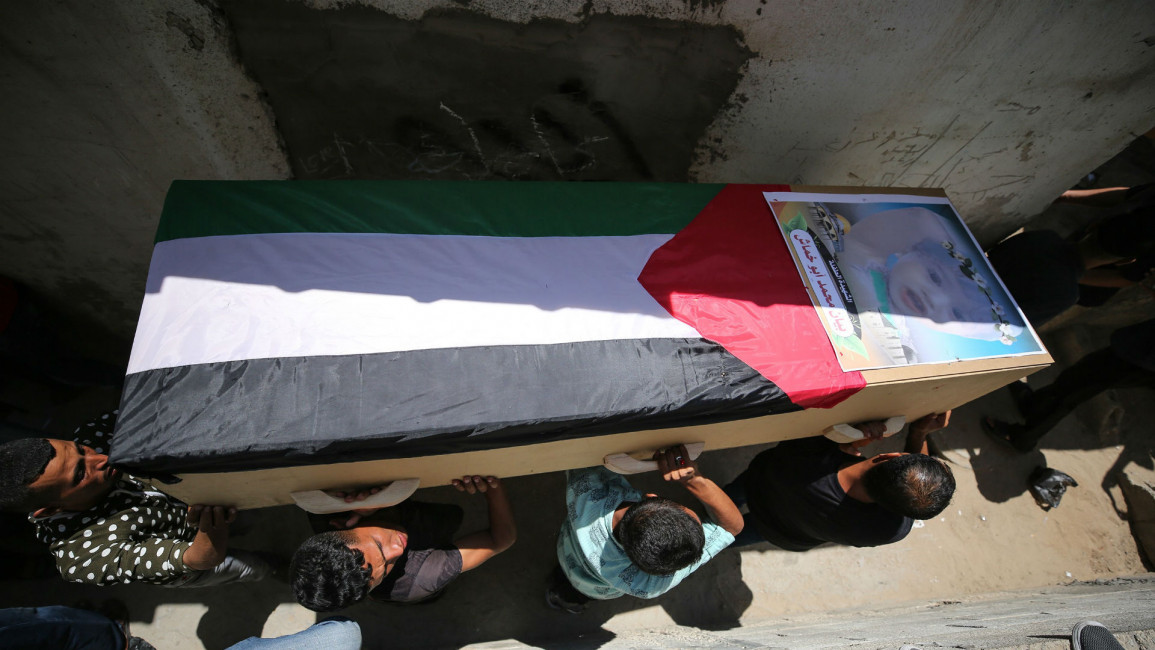Palestinian factions declare ceasefire after deadly Gaza violence
It was the third major escalation since July and came despite attempts by UN officials and Egypt to secure a long-term truce between Israel and Hamas.
Two Palestinian officials said on condition of anonymity that Gaza fighters halted rocket fire at noon on Thursday. One of the officials said "they consider this round of escalation over."
Israel's military declined to comment.
Beginning on Wednesday night and into Thursday, fireballs and explosions shook the Gaza Strip while plumes of smoke rose from the enclave.
In nearby Israeli communities, residents were sent scrambling to bomb shelters.
Most of the rockets fired by Palestinian groups landed in open areas, but at least two hit the Israeli town of Sderot near the Gaza Strip and sirens sounded throughout the night and into the morning.
Twitter Post
|
Medics reported at least four wounded taken to Israeli hospitals, including a 30-year-old Thai woman in moderate to severe condition after being injured in the Eshkol region bordering the Gaza Strip.
Israel's military reported seven civilians wounded.
Those killed in the Gaza Strip included Enas Khammash, 23, and her 18-month-old daughter Bayan, according to the Hamas health ministry.
They were killed in an airstrike in Jafarawi in central Gaza, the ministry said, while her husband was injured. The ministry said Khammash was also pregnant.
A Hamas fighter was also killed in the strikes and at least 12 others injured, the health ministry said.
Israel's army said it targeted more than 150 Hamas military locations, including militant compounds and weapons manufacturing sites.
A statement from the military wing of Hamas claimed responsibility for the rockets.
It said the Palestinian "resistance" had fired a large number of rockets at "enemy positions in the Gaza envelope".
'Deeply alarmed'
The three flare-ups since July, which follow months of tensions due to protests along the Gaza border, have raised fears of a fourth war between the two sides since 2008.
Nickolay Mladenov, the UN envoy for the Middle East conflict who has been seeking to negotiate a long-term truce between Israel and Hamas, said he was "deeply alarmed."
"For months I have been warning that the humanitarian, security and political crisis in Gaza risks a devastating conflict that nobody wants," he said in a statement.
Palestinian president Mahmoud Abbas called on the international community to "immediately and urgently intervene."
 |
It was the third major escalation since July and came despite attempts by UN officials and Egypt to secure a long-term truce between Israel and Hamas |  |
Israeli Prime Minister Binyamin Netanyahu was convening a meeting of his security cabinet.
The flare-up that began Wednesday night followed an incident the previous day.
In that incident, two fighters from Hamas's military wing were killed by Israeli fire along the border.
Israel initially said the two fighters were shooting at Israeli soldiers, but Hamas said they were involved in a training exercise that senior officials were attending.
Israeli media reported that army officials later acknowledged a mistake had been made and the militants had not been firing at soldiers, though the military would not confirm that information to AFP.
Hamas warned Israel it would pay for the attack, and on Wednesday the army said shots were fired at civilian engineers working on an underground barrier along the border, prompting the military to respond with tank fire.
That was followed by the rockets and then the Israeli airstrikes.
Protests and clashes along the Gaza border began on 30 March and peaked with the 14 May move of the US embassy for Israel to the disputed city of Jerusalem.
East Jerusalem is considered occupied Palestinian territory under international law.
At least 165 Palestinians taking part in demonstrations have been killed by Israeli sniper fire since 30 March. One Israeli soldier has been shot dead by a Palestinian sniper.
Follow us on Twitter: @The_NewArab


![President Pezeshkian has denounced Israel's attacks on Lebanon [Getty]](/sites/default/files/styles/image_684x385/public/2173482924.jpeg?h=a5f2f23a&itok=q3evVtko)



 Follow the Middle East's top stories in English at The New Arab on Google News
Follow the Middle East's top stories in English at The New Arab on Google News


